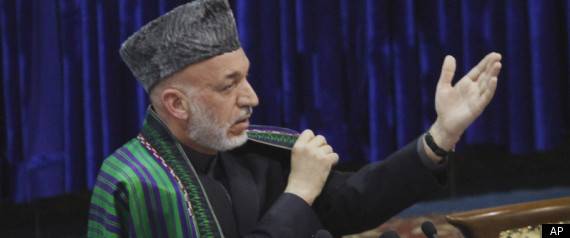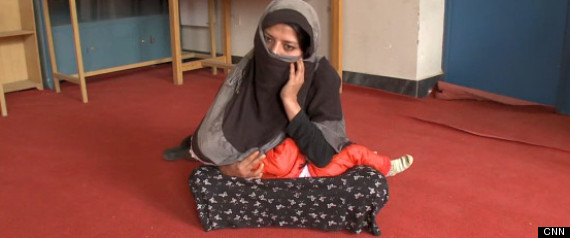Fucking sick and backwards.
Hamid Karzai, Afghanistan President, Pardons Imprisoned Rape Victim

Hamid Karzai, Afghanistan President, Pardons Imprisoned Rape Victim

Hamid Karzai, Afghanistan President, Pardons Imprisoned Rape Victim

KABUL, Afghanistan Afghan President Hamid Karzai on Thursday pardoned an Afghan woman serving a 12-year prison sentence for having sex out of wedlock after she was raped by a relative.
Karzai's office said in a statement that the woman and her attacker have agreed to marry. That would reverse an earlier decision by the 19-year-old woman, who had previously refused a judge's offer of freedom if she agreed to marry the rapist.
Her plight was highlighted in a documentary that the European Union blocked because it feared the women featured in the film would be in danger if it were shown.
More than 5,000 people recently signed a petition urging Karzai to release the woman. She had the man's child while in prison and raised her daughter behind bars, which is common among women imprisoned in Afghanistan.
A statement released by Karzai's office says that after hearing from judicial officials, the decision was made to forgive the rest of the sentence she received for having sex out of wedlock, a crime in Afghanistan. The presidential statement did not say when the woman was to be released or how much prison time had been pardoned.
The woman told The Associated Press in an interview last month that she had hoped that attention generated by the EU film might help her get released. With the film blocked, she said that she was losing hope and considering marrying her rapist as a way out. She said her attacker was pressuring her to stop giving interviews.
About half of the 300 to 400 women jailed in Afghanistan are imprisoned for so-called "moral crimes" such as sex outside marriage, or running away from their husbands, according to reports by the United Nations and research organizations. Fleeing husbands isn't considered a crime in Afghanistan.
The EU welcomed the woman's release.
"Her case has served to highlight the plight of Afghan women, who 10 years after the overthrow of the Taliban regime often continue to suffer in unimaginable conditions, deprived of even the most basic human rights," the European Union's Ambassador and Special Representative to Afghanistan, Vygaudas Usackas, said.
He said the EU hoped the same mercy would be extended to other women serving similar terms. Usackas said he planned to raise the issue of Afghan women's rights at an international conference on Afghanistan Dec. 5 in Bonn, Germany.
Hamid Karzai, Afghanistan President, Pardons Imprisoned Rape Victim



